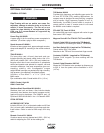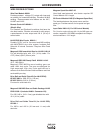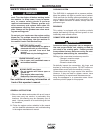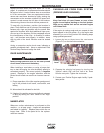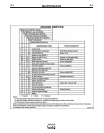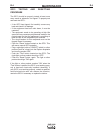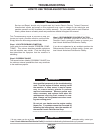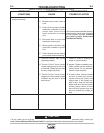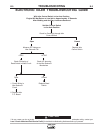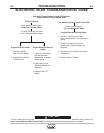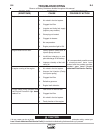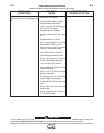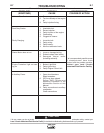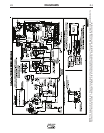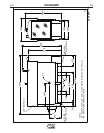
+)&,#*&&+ %
*R
Observe all Safety Guidelines detailed throughout this manual
If for any reason you do not understand the test procedures or are unable to perform the tests/repairs safely, contact your
#@42=#:?4@=?FE9@C:K65:6=5*6CG:4624:=:EJ for technical troubleshooting assistance before you proceed.
,+ &%
')&#$*
*0$'+&$*
'&** #)*&
$ *!,*+$%+**
)&$$%
&,)*&+ &%
Welder starts but fails to generate
current.
Welding arc is loud and spatters
excessively.
Welding current too great or too
small compared to indication on
the dial.
1. Generator or exciter brushes
may be loose or missing.
2. Exciter may not be operating.
3. Field circuit of generator or
exciter may be open.
4. Exciter may have lost excita-
tion.
5. Series field and armature cir-
cuit may be open-circuited.
1. Current setting may be too
high.
2. Polarity may be wrong.
1. Exciter output low causing low
output compared to dial indica-
tion.
2. Operating speed too low or too
high.
3. “Current Control” shaft and
handle may have turned slight-
ly in the insulated bushing of
the current control brush hold-
er, caused by turning handle
too hard against one of the
stops.
If all recommended possible areas of
misadjustment have been checked
and the problem persists, @?E24E
J@FC=@42=#:?4@=?FE9@C:K65
:6=5*6CG:4624:=:EJ
3. With current control against the
minimum stop, set pointer to with-
in 1/8” of the last scale division.



